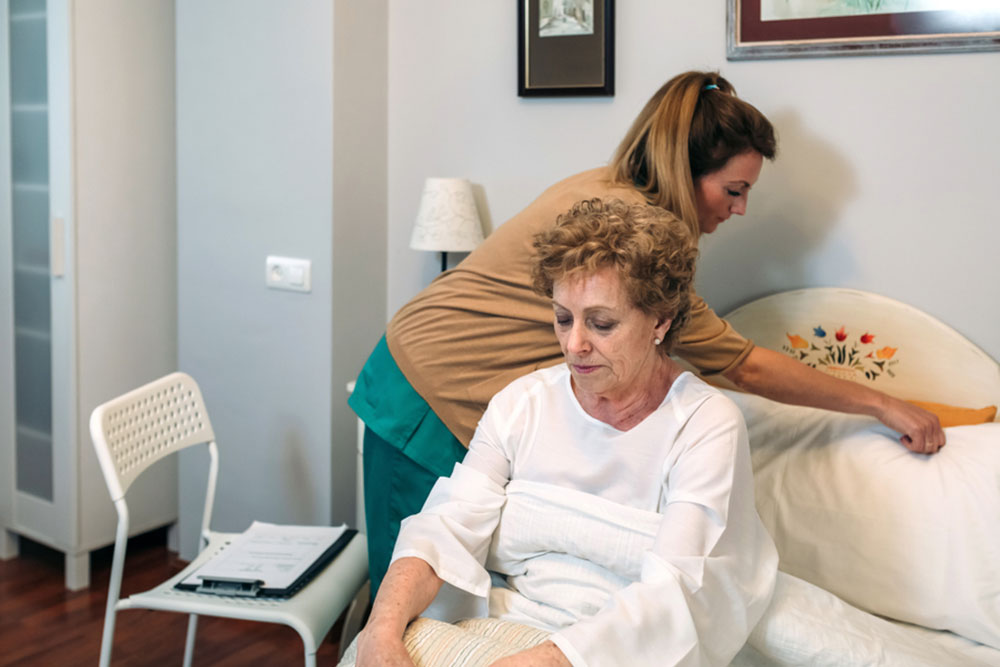Enhancing Relationships: Essential Strategies for SMA Patients and Their Caregivers
Building strong relationships between SMA patients and caregivers is crucial for effective care and emotional support. This comprehensive guide offers practical strategies, including proactive communication, clear sharing of needs, and respectful conflict resolution. Implementing these tips fosters trust, understanding, and resilience, enriching the caregiving experience and improving quality of life for those affected by SMA. Embracing open dialogue and mutual respect creates a supportive environment that benefits both patients and caregivers in meaningful ways.

Spinal Muscular Atrophy (SMA) is a genetic disorder characterized by progressive muscle weakness, which often necessitates comprehensive caregiving to manage daily life effectively. For those affected by SMA, fostering a strong, open, and respectful relationship with their caregivers is vital for ensuring optimal health outcomes and emotional stability. Whether caregivers are family members, friends, or professional caregivers, establishing effective communication and understanding is the foundation of supportive care. In this article, we will explore detailed strategies that SMA patients and caregivers can adopt to nurture a relationship built on trust, respect, and mutual understanding, ultimately improving the quality of life for both parties.
1. Communicate Schedule Changes Proactively
One of the most critical aspects of maintaining a good relationship with caregivers involves transparent and timely communication regarding daily routines. SMA patients should make it a habit to inform their caregivers well in advance about any adjustments to their schedules. Sudden changes in routine can cause inconvenience or disrupt the caregiver’s planning, especially when they are managing multiple responsibilities. For example, if a patient anticipates a medical appointment, therapy session, or social activity, notifying the caregiver ahead of time allows them to prepare accordingly and ensures that all necessary arrangements are made smoothly.
Effective communication reduces misunderstandings and fosters a sense of cooperation. Caregivers often have their own commitments—be it work responsibilities, family obligations, or personal appointments—and respecting their time is crucial. By providing advance notice, SMA patients not only help their caregivers plan better but also demonstrate respect and appreciation for their support. This proactive approach can prevent last-minute crises and build a dependable and predictable caregiving environment, which is vital for emotional comfort and stability.
2. Explicitly Share Needs and Preferences
Ensuring that caregivers fully understand the specific needs of SMA patients is fundamental to delivering personalized and effective care. Patients should clearly communicate their routines, likes, dislikes, limitations, and health considerations to caregivers. Whether the caregiver is a professional, a family member, or a friend, detailed information about medication schedules, mobility assistance, nutritional needs, and comfort preferences helps in tailoring the caregiving approach.
For example, if a patient prefers a certain position for comfort or has specific dietary restrictions, communicating this information prevents misunderstandings and allows caregivers to provide care that aligns with the patient’s preferences. Moreover, discussing emotional and psychological needs is equally important — expressing feelings, fears, or concerns helps build emotional rapport and ensures a supportive environment.
Creating detailed care plans or checklists can be beneficial when engaging with hired caregivers or agency staff. These documents serve as reference points, ensuring that all aspects of the patient’s care are consistently addressed, even when multiple caregivers are involved. Clear, honest communication encourages trust and collaboration, making caregiving a more comfortable and effective experience for everyone involved.
3. Resolve Conflicts Respectfully and Constructively
In every close relationship, disagreements and misunderstandings are inevitable. For SMA patients and their caregivers, maintaining a healthy relationship requires addressing conflicts openly and with mutual respect. When disagreements arise — whether related to daily routines, medical decisions, or emotional concerns — it’s essential to approach them calmly and constructively.
Open dialogue allows both parties to express their perspectives without judgment. Listening actively and showing empathy can significantly de-escalate tensions and foster mutual understanding. For instance, if a patient feels that a particular routine isn’t comfortable or effective, communicating this calmly enables caregivers to adjust care strategies accordingly. Similarly, caregivers should feel comfortable voicing concerns and suggestions, knowing their input is valued.
Maintaining a problem-solving mindset rather than assigning blame helps strengthen trust. When conflicts are resolved through respectful communication, both SMA patients and caregivers develop a resilient bond that can withstand future challenges. Building this foundation of trust and respect is critical for long-term emotional health and effective caregiving.
Fostering a Supportive Environment for SMA Patients and Caregivers
Creating a harmonious relationship between SMA patients and their caregivers goes beyond routine communication. It involves ongoing effort, reassurance, and compassion from both sides. Encouraging open conversations, mutual respect, and understanding ensures that both parties feel valued and supported. This, in turn, leads to better health outcomes, emotional resilience, and improved quality of life.
Furthermore, it’s beneficial for SMA patients and caregivers to establish regular check-ins where they can discuss ongoing concerns, share successes, and adjust routines as needed. Developing a habit of positive reinforcement and appreciation can significantly enhance their bond. Celebrating small victories—whether managing daily routines smoothly or overcoming challenges—can boost morale and foster a sense of partnership.
In addition, seeking external support through community resources, support groups, or professional counseling can provide additional assistance and guidance. These resources can offer strategies for effective communication, coping mechanisms for stress, and a safe space to share experiences.
Conclusion
For SMA patients and their caregivers, building a strong, respectful, and understanding relationship is essential for effective care and emotional well-being. By proactively communicating schedule changes, clearly sharing needs and preferences, and approaching disagreements with respect and openness, both parties can cultivate a supportive environment. These strategies promote trust, reduce misunderstandings, and create a positive caregiving experience. Ultimately, a resilient relationship founded on mutual respect and kindness enables SMA patients to live more comfortable, confident, and empowered lives, supported by caregivers who truly understand and respect their unique needs and challenges.





